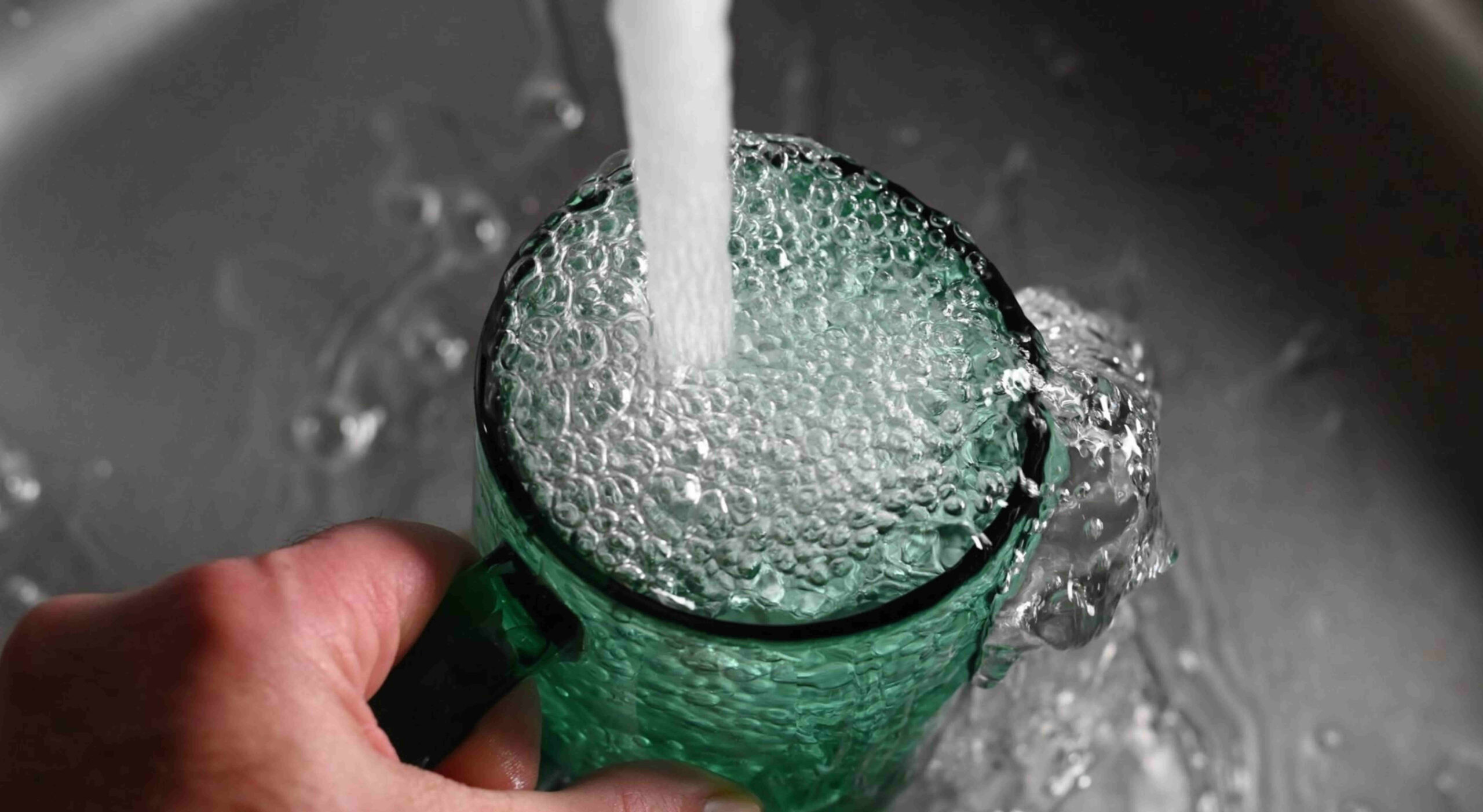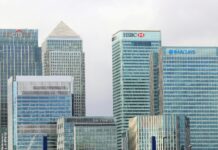Can You Drink The Tap Water In London? Facts To Know
This article dives into the question of whether it’s safe to drink tap water in London. Spoiler alert: It’s a mixed bag, but mostly safe, I guess. So, London gets its water from rivers, reservoirs, and underground sources. It’s like a big water cocktail, but not the fun kind. You’d think it’s all good, right? Well, hold on a second.
Understanding London’s Water Supply
London’s water supply is pretty extensive, and it’s sourced from multiple locations. It’s like a buffet of water, just without the food. You got the Thames, reservoirs, and even underground aquifers. You might think that’s a recipe for success, but it’s not all sunshine and rainbows. Some say it could be better, but who am I to judge?
Water Quality Standards
The water quality in London is regulated by the government, which is supposed to keep it safe. But honestly, I’m not really sure how often they check, to be honest. It’s like they have standards, but do they stick to them? Who knows?
- Who Regulates The Water?
The Drinking Water Inspectorate (DWI) is the big boss here. They make sure the water is safe, but sometimes I wonder if they’re just giving it a quick glance, you know? Like, “Yep, looks good!”
- Regular Testing
Water is tested regularly, but what if they miss something? I mean, it’s not like they can taste it, right? Maybe it’s just me being paranoid.
- Consumer Confidence Reports
Every year, they publish reports that say the water is safe. But do we really trust those reports? I mean, who writes those anyway? I got my doubts.
Common Contaminants
There are some contaminants that could be in the water, like lead and chlorine. Sounds scary, huh? But it’s usually within safe limits, or so they say. It’s like playing a game of Russian roulette, but with water.
Is Tap Water Safe To Drink?
Most people drink tap water in London without issues. But, I mean, it’s not like I’m going to chug a gallon and hope for the best. That’s just asking for trouble.
- What Do Locals Say?
Ask any Londoner, and they’ll probably say, “Yeah, it’s fine.” But then again, they might just be used to it. I’m not sure if that counts.
- Travelers’ Opinions
Tourists often wonder if they should stick to bottled water. I guess it’s a personal choice, but who wants to lug around a bottle everywhere? Not me!
When To Avoid Tap Water
There are times when you might want to skip the tap water. Like if you’re in an old building or something. Just trust your gut, I guess. Old plumbing can be a nightmare.
- Old Plumbing Issues
If you’re in a place with ancient pipes, maybe don’t drink the water. I mean, who knows what’s crawling around in there?
- Traveling Outside London
If you venture out of London, the water quality can change. So, it’s best to check local sources, because, you know, not all water is created equal.
Filtered Water: A Safer Option?
Some people get water filters for peace of mind. But do they actually make a difference? I’m not really sure. It’s like buying insurance, I guess. But do you really need it?
- Types of Water Filters
There are different types of filters, like carbon and reverse osmosis. They sound fancy, but do they really work? I have my doubts.
- Cost vs. Benefits
Buying a filter can be pricey. Is it worth it for peace of mind? That’s a question only you can answer, my friend.
Final Thoughts
In conclusion, tap water in London is generally safe, but it’s always smart to be cautious. Trust your instincts and maybe carry a bottle just in case. Better safe than sorry, right?
Understanding London’s Water Supply
So, let’s talk about where London gets its water from. It’s like a big water cocktail, but not the fun kind you’d want at a party. London’s water comes from a mix of rivers, reservoirs, and underground sources. I mean, you’d think it’s all good and dandy, right? But hold on a minute. The reality is a bit more complicated.
First off, the rivers are like the main players in this water game. The River Thames, for example, is a significant source. But, um, it’s also one of the most polluted rivers in the UK. Not exactly confidence-inspiring, if you ask me. But hey, they do treat the water before it hits your tap, so that’s something. Right?
Then there are the reservoirs. They’re like large water storage tanks, but they can get kinda crowded, especially in the summer. And let’s not forget about the underground sources, which are basically aquifers that have been around for ages. They’re like the hidden gems of London’s water supply. But, who knows what’s lurking down there?
- Rivers: Mostly from the River Thames
- Reservoirs: Large storage tanks that can get crowded
- Underground Sources: Aquifers that have been around for ages
Now, you might be wondering, “Is it safe to drink this water?” Well, it’s a mixed bag, honestly. Most people drink it without issues, but I can’t help but feel a little skeptical. Maybe it’s just me, but I think about all the things that could go wrong. Like, what if some weird chemical is in there? Or, what if the pipes are super old? You never know!
| Source | Pros | Cons |
|---|---|---|
| Rivers | Accessible and abundant | Pollution concerns |
| Reservoirs | Good storage | Crowded in summer |
| Underground Sources | Natural filtration | Unknown contaminants |
And here’s the kicker: the water quality is regulated by the government. They have standards to keep it safe, but I’m not really sure how often they check. Like, do they just take a quick glance and call it a day? I mean, I’d hope they do more than that. But then again, who am I to judge?
Every year, they publish these Consumer Confidence Reports that say the water is safe. But do we really trust those reports? I mean, who writes those anyway? It’s like, “Sure, everything’s fine,” but I can’t shake the feeling that there’s more to the story.
In conclusion, London’s water supply is a mixed bag of rivers, reservoirs, and underground sources. It’s mostly safe to drink, but it’s always smart to be cautious. Trust your gut, and maybe carry a bottle just in case. Because, you know, better safe than sorry!
Water Quality Standards
in London are kind of a big deal, but honestly, I’m not really sure how often they check the water. It’s like they have this system in place, but sometimes it feels like they’re just going through the motions. You know what I mean? The government sets these standards to keep our water safe, but it’s hard to shake off that nagging feeling of uncertainty.
So, the main player in all of this is the Drinking Water Inspectorate (DWI). They’re the ones who ensure the water is safe for drinking, but I can’t help but wonder if they’re just giving it a quick glance and moving on. Like, “Yeah, looks good,” and then off they go for a cuppa. It’s not like they can taste it, right?
- Regular Testing: They do test the water regularly, but what if they miss something? I mean, it’s not like they’re drinking it all day. Maybe it’s just me being paranoid, but it feels like they could overlook something important.
- Consumer Confidence Reports: Every year, they publish these reports that say the water is safe. But do we really trust those reports? I mean, who writes those anyway? It could be like a bunch of interns just ticking boxes.
Now, let’s talk about common contaminants. There are a few things that can sneak into our water, like lead and chlorine. Sounds scary, huh? But they say it’s usually within safe limits, or so they claim. I guess it’s all about perspective. If you’re used to drinking it, you might not even notice.
| Contaminant | Potential Risks | Safe Limits |
|---|---|---|
| Lead | Can affect brain development | 0.01 mg/L |
| Chlorine | Can cause skin irritation | 4.0 mg/L |
Most people in London drink tap water without any issues, but I mean, it’s not like I’m going to chug a gallon and hope for the best. You know? It’s like playing Russian roulette with your health. And then there are locals who’ll tell you, “Yeah, it’s fine.” But then again, they might just be used to it. I’m not sure if that counts as a solid endorsement.
Travelers often wonder if they should stick to bottled water. I guess it’s a personal choice, but carrying a bottle around everywhere is a hassle. Like, who wants to lug that around? Not me, that’s for sure. But if you’re in an old building or something, maybe skip the tap water. Just trust your gut, right?
Here’s a little tip: if you’re in a place with ancient pipes, you might want to think twice about drinking the water. I mean, who knows what’s crawling around in there? And if you venture outside London, the water quality can really change. So, it’s best to check local sources. Not all water is created equal, after all.
Some folks go for water filters for peace of mind. But do they actually make a difference? It’s like buying insurance, I guess. There are different types of filters out there, like carbon and reverse osmosis. They sound fancy, but do they really work? That’s a question for the ages.
In conclusion, while tap water in London is generally safe, it’s always smart to be cautious. Trust your instincts and maybe carry a bottle just in case. And remember, life’s too short to worry about every little thing, so drink up and enjoy!
Who Regulates The Water?
The Drinking Water Inspectorate (DWI) is like the big boss of water safety in the UK. They’re the ones who are supposed to ensure that the water we drink is safe, which is a pretty big deal, right? But sometimes, I wonder if they’re just giving it a quick glance, you know? Like, “Oh, looks good enough!” and then they move on to the next thing. Not really sure why this matters, but it does make you think.
So, here’s the deal: the DWI has a bunch of regulations and standards in place that are meant to keep our drinking water clean and safe. They do regular testing, but what if they miss something? I mean, it’s not like they can taste it, right? Maybe it’s just me being paranoid, but I can’t help but feel a little skeptical about the whole process.
| Regulation | Description |
|---|---|
| Water Quality Regulations | Set limits on contaminants in drinking water. |
| Testing Frequency | Water is tested regularly for various contaminants. |
| Consumer Reports | Annual reports on water quality for public awareness. |
Every year, the DWI publishes these Consumer Confidence Reports, which supposedly tell us that the water is safe. But do we really trust those reports? I mean, who writes those anyway? It feels a bit like they’re just trying to tick a box, and we’re supposed to take their word for it. Maybe it’s just me, but I feel like we need more transparency here.
- Regular Testing: Water is tested frequently, but are they thorough enough?
- Contaminant Limits: They set limits, but what if those limits are too high?
- Public Trust: How much do we really trust these reports?
Now, let’s talk about some common contaminants that might be lurking in our water. There’s lead, chlorine, and even some pesky bacteria. Sounds scary, huh? But it’s usually within safe limits, or so they say. But who even knows what “safe” really means? I mean, it’s all relative, right?
Most people in London drink tap water without any issues, but I mean, it’s not like I’m going to chug a gallon and hope for the best. I’ve heard locals say, “Yeah, it’s fine,” but maybe they’re just used to it. It’s like that saying, “You don’t know what you’ve got until it’s gone.”
If you’re a traveler, you might be wondering if you should stick to bottled water. I guess it’s a personal choice, but who wants to lug around a bottle everywhere? It’s like carrying a backpack full of regrets. Sometimes, it’s just easier to trust your gut and go with the flow, pun intended.
In conclusion, while the DWI is the big boss regulating our water, it’s always smart to be cautious. Trust your instincts, maybe carry a bottle just in case, and don’t forget to question everything. Because at the end of the day, we all deserve to know what’s in our water.
Regular Testing
of water in London is a big deal, or at least that’s what they say. They test it regularly, but what if they miss something? I mean, it’s not like they can taste it, right? It’s kind of like when you’re cooking and you think you added enough salt, but then you take a bite and it’s like, “Whoa, what is this blandness?” Maybe it’s just me being paranoid, but I feel like there’s more to this whole testing thing than meets the eye.
So, let’s break it down. The water undergoes testing for various contaminants, but sometimes I wonder if they’re just checking off boxes instead of really diving deep into what’s in there. Like, do they really know if there’s something lurking in the pipes that could make you feel like you’ve just swallowed a swimming pool? Water quality testing in London is supposed to be thorough, but I’m not really sure how often they actually find the time to do it. Maybe they’re just busy with other stuff, who knows?
| Contaminants | Potential Effects | Safe Limit |
|---|---|---|
| Lead | Can cause developmental issues in children | 0.01 mg/L |
| Chlorine | Can irritate skin and eyes | 4 mg/L |
| Microbial contaminants | Can cause gastrointestinal issues | None detected |
Now, I get it, they have regulations and stuff in place. The Drinking Water Inspectorate (DWI) is the big boss here, making sure that the water is safe. But sometimes, I wonder if they’re just giving it a quick glance, you know? Like, “Oh yeah, that looks fine,” and then they move on. Are they really checking for everything? Or are they just hoping for the best? It’s like when you do laundry and just hope that everything comes out clean without checking every single piece of clothing.
- is important, but how frequent is it?
- Do they test for everything that might be harmful?
- Should we be worried about what’s in the pipes?
Every year, they publish these reports that claim the water is safe. But do we really trust those reports? I mean, who writes those anyway? It’s like reading a movie review from someone who clearly has different taste than you. Maybe it’s just me, but I feel like I’d rather hear it from someone who’s actually drinking the water every day. Like, “Hey, is it safe or not?”
And let’s be real, there are some common contaminants that could be in the water, like lead and chlorine. Sounds scary, huh? But it’s usually within safe limits, or so they say. But who really knows what “safe” means? It’s all a bit of a gamble, if you ask me. I mean, most people drink tap water in London without issues, but I’m not about to chug a gallon and hope for the best. That’s just asking for trouble.
In conclusion, while the water is tested regularly, it’s always good to keep an eye on what’s really going on. Trust your instincts and maybe carry a bottle just in case. It’s better to be safe than sorry, right? So, the next time you fill up your glass from the tap, just remember: it might be fine, but it never hurts to be a little cautious.
Consumer Confidence Reports
are like the annual report cards for tap water in London. Every year, the authorities publish these documents claiming that the water is safe to drink. But, honestly, can we really trust those reports? I mean, who’s behind the pen, writing those things anyway? Is it some top-notch scientist, or just a guy named Dave from accounting? Not really sure why this matters, but it makes you think, right?
First off, let’s talk about the frequency of these reports. They come out once a year, which sounds good on paper, but what happens in between? It’s like saying your car is fine because you checked the oil last year. What if there’s a big ol’ crack in the engine? You get what I mean? Annual water quality reports can be reassuring, but they’re not exactly a guarantee that everything’s peachy keen.
Now, let’s dive into how these reports are created. The Drinking Water Inspectorate (DWI) is the big cheese in this scenario. They’re supposed to ensure our water is safe, but I sometimes wonder if they just give it a quick once-over. I mean, how thorough can they be? It’s not like they’re tasting the water daily, right? And if they are, I hope they’re not just chugging it down like it’s a fine wine.
| Year | Reported Contaminants | Safety Rating |
|---|---|---|
| 2020 | Lead, Chlorine | Safe |
| 2021 | None | Safe |
| 2022 | Chlorine | Safe |
And then there’s the matter of common contaminants. Sure, they say lead and chlorine levels are within safe limits, but who’s to say those limits are actually safe? Sounds a bit dodgy, right? It’s like being told you can eat cake every day as long as it’s a small slice. Who’s keeping track of the slices?
- Lead: Often found in old pipes.
- Chlorine: Used for disinfection, but too much isn’t great.
- Bacteria: Sometimes, it sneaks in there.
So, when you see those , you might feel a bit better, but does it really mean you should pour yourself a glass and drink up? Most locals say, “Yeah, it’s fine,” but maybe they’ve just gotten used to the taste of London’s tap water. I mean, if you’ve been drinking it all your life, it’s hard to imagine anything else, right?
And what about tourists? They often ask, “Should I just stick to bottled water?” I guess it’s a personal choice, but lugging around a water bottle everywhere sounds like a hassle. So, you’re stuck between a rock and a hard place.
In conclusion, while those claim the water is safe, it’s always good to be a bit skeptical. Trust your gut, and maybe keep a bottle handy. After all, it’s better to be safe than sorry, right? Just remember, if in doubt, drink up — but maybe not a gallon at once!
Common Contaminants
When it comes to the quality of tap water in London, there’s a lot to consider. You might think, “Oh, it’s just water, right?” But hold your horses! There are some that could be lurking in your glass. Let’s dive into this, shall we?
- Lead – Sounds scary, huh? Lead can seep into the water through old pipes, especially in older buildings. But don’t panic just yet! The levels are usually within safe limits, or so they say. But like, who really trusts them?
- Chlorine – This is added to kill bacteria, but it can also leave a funky taste. I mean, it’s like drinking a swimming pool, right? Not really the refreshing sip you’d hope for.
- Microplastics – Yup, you heard that right! Tiny bits of plastic can find their way into the water supply. Not really sure why this matters, but it’s a thing. And it’s kinda gross if you think about it.
So, what does this mean for you? Well, most of the time, the levels of these contaminants are within acceptable limits. But it’s not like you can see them, right? It’s like playing a game of Russian roulette with your health. Maybe it’s just me, but I feel like I’d rather not take that chance.
| Contaminant | Source | Health Risks |
|---|---|---|
| Lead | Old plumbing | Neurological issues, especially in children |
| Chlorine | Water treatment | Skin irritation, potential long-term health effects |
| Microplastics | Environmental pollution | Unknown long-term effects |
Now, let’s talk about the Drinking Water Inspectorate (DWI). They’re like the watchdogs of London’s water, but sometimes I wonder if they’re just giving it a quick glance, you know? Regular testing is done, but what if they miss something? I mean, it’s not like they can taste it, right? Just because they say it’s safe doesn’t mean it is. It’s like when your friend says they’re fine, but you can see they’re clearly not.
And then there are the Consumer Confidence Reports. Every year, they publish these reports claiming the water is safe. But do we really trust those reports? I mean, who writes those anyway? Maybe it’s just some intern who’s trying to make it look good. I dunno, but it makes me skeptical.
So, what should you do? Well, you could always invest in a water filter. But do they actually make a difference? There are different types, like carbon and reverse osmosis, but it’s like buying insurance, isn’t it? You hope you never need it, but it costs a pretty penny.
In conclusion, while tap water in London is generally safe, it’s always smart to be cautious. Trust your instincts and maybe carry a bottle just in case. Because at the end of the day, it’s your health we’re talking about here!
Is Tap Water Safe To Drink?
So, let’s talk about the big question: Is tap water safe to drink in London? Most Londoners seem to think it’s totally fine, and honestly, they down it like it’s the best thing since sliced bread. But, I mean, I’m not really sure I’d go as far as to chug a gallon without a second thought. Like, what if there’s something funky in there?
London’s tap water comes from a mix of sources: rivers, reservoirs, and underground aquifers. It’s like a water smoothie, but not the refreshing kind you’d want on a hot day. You’d think that with all that water flowing around, it’d be crystal clear and pure. But nope, it’s not that simple.
Now, the government has these fancy regulations for water quality, which are supposed to keep us safe. I guess that’s reassuring? But, honestly, I can’t help but wonder how often they actually check things. Like, do they just take a quick peek and call it a day? Not really sure how much I trust that.
Who’s in Charge?
The Drinking Water Inspectorate (DWI) is the big cheese when it comes to regulating our water. They’re supposed to make sure everything’s up to snuff, but sometimes I feel like they might just be giving it a casual glance. I mean, who wouldn’t be a little paranoid about drinking water that’s been through who-knows-what?
Water is tested regularly, but what if they miss something? Like, they can’t taste it, right? Maybe it’s just me being overly cautious, but I think it’s valid to be a bit skeptical. And then there are those annual consumer confidence reports that claim the water is safe. But do we really trust those? I mean, who even writes those reports?
Common Contaminants
There are mentions of contaminants like lead and chlorine lurking in the water. Sounds a bit scary, huh? But hey, it’s usually within safe limits, or so they say. I guess it’s all about picking your battles. If you’re gonna drink tap water, just know there might be a few questionable things swimming around.
So, back to the question of whether tap water is safe to drink. Most people in London drink it without issues, but I can’t help but think twice before gulping it down. Maybe it’s just my overactive imagination, but I’d rather be safe than sorry.
What Do Locals Say?
- Ask a Londoner, and they’ll probably shrug and say, “Yeah, it’s fine.”
- But honestly, are they just used to it? Like, do they even notice?
Travelers’ Opinions
Tourists often wonder if they should stick to bottled water. I mean, who wants to lug around a heavy bottle everywhere? But then again, it’s a personal choice, right? Just keep in mind that not every place has the same water quality.
When To Avoid Tap Water
There are definitely times when you might want to skip the tap water. If you’re in an old building with ancient pipes, maybe don’t risk it. Who knows what’s crawling around in there? And if you venture outside of London, the water quality can change drastically. So, always check local sources.
Filtered Water: A Safer Option?
Some folks opt for water filters for that extra peace of mind. But do they actually work? It’s like buying insurance—you hope you never need it, but it’s nice to have. There are different types of filters, like carbon and reverse osmosis. They sound fancy, but do they really do the trick?
Final Thoughts
In conclusion, tap water in London is generally safe, but it’s always smart to be cautious. Trust your instincts, and maybe carry a bottle just in case. After all, it’s better to be safe than sorry, right?
What Do Locals Say?
So, let’s dive into what the locals in London think about drinking tap water. If you ask any Londoner, there’s a good chance they’ll shrug and say, “Yeah, it’s fine.” But, like, is it really fine? Or are they just so used to it that they can’t even taste the difference anymore? I mean, it’s kind of like that friend who insists that their cooking is great, but you’re just trying to be polite, right?
- Most Londoners drink tap water without a second thought. They fill their glasses, chug it down, and go about their day. But, I can’t help but wonder — are they just being brave or do they genuinely believe it’s safe?
- Some folks have their doubts, though. You’ll hear murmurs about lead pipes and chlorine levels, which sounds like something out of a horror movie. Like, do we really want to be drinking something that sounds like it should be in a science lab?
- Then there’s the whole thing about taste. Many locals say that London’s tap water is pretty good compared to other cities. But I’ve tasted some tap water that’s downright nasty. So, I guess taste is subjective?
In the end, it seems like a mixed bag. Some people swear by their trusty tap water, while others are more cautious. Maybe it’s just me, but I feel like there’s a fine line between being adventurous and being foolish. And who wants to take that risk, right?
Now, let’s talk about the tourists. They often ask, “Is it safe to drink the tap water in London?” and honestly, I get it. If I was traveling to a new city, I’d probably stick to bottled water too. It’s just easier, and you don’t have to think too much about it. But lugging around a bottle everywhere can be a pain, especially when you’re trying to enjoy the sights.
| Local Opinions | Tourist Views |
|---|---|
| “It’s fine, really!” | “I’ll just stick to bottled water.” |
| “I’ve been drinking it my whole life.” | “What if it’s contaminated?” |
| “Not sure what the fuss is about.” | “I’d rather be safe than sorry.” |
So, when it comes down to it, what do locals really think? It’s like they’re in this weird bubble of confidence. They’ve grown up with it, and maybe they just don’t question it anymore. But, for someone like me, who’s just graduated and trying to navigate all this, I can’t help but feel a bit skeptical. Like, should I be drinking it or not?
In conclusion, if you’re in London and you’re feeling adventurous, go ahead and give the tap water a try. But if you’re not sure, maybe stick to bottled water. At the end of the day, it’s all about what makes you feel comfortable. Just remember, whether you’re a local or a tourist, it’s always good to trust your gut. And if your gut says don’t drink it, well, maybe you should listen.
Travelers’ Opinions
So, let’s dive into what tourists think about drinking tap water in London. It’s kind of a hot topic, right? Some folks are all about the bottled water life, while others are like, “Nah, I’m good with the tap.” Honestly, it’s a bit of a mixed bag. You got people who swear by the bottled stuff, claiming it’s way safer. But then there are those who are all about that London tap water and say it’s perfectly fine. I mean, who really wants to carry around a bottle everywhere? It’s like, come on, I’m on vacation here!
- Convenience vs. Safety: Some tourists just want to enjoy their trip without lugging around extra weight. But is it worth the risk? Like, what if the tap water is super sketchy?
- Cost Considerations: Bottled water can add up, especially if you’re in London for a while. You could end up spending a small fortune on something that’s basically just water!
- Local Insights: Ask a Londoner, and they’ll probably say, “Yeah, it’s fine,” but then again, they’re used to it. Maybe it’s just me, but I feel like their tolerance might be different than a tourist’s.
Some travelers are all about that local experience, and they want to drink tap water like the locals do. But then there’s that nagging doubt, you know? Like, is it really safe? What if I end up with a stomach bug or something? I mean, who wants that? It’s not like I’m trying to spend my vacation running to the bathroom every five minutes!
| Traveler Opinion | Bottled Water | Tap Water |
|---|---|---|
| Convenience | Easy to carry around | Can be found everywhere |
| Cost | Expensive over time | Free from the tap |
| Safety | Perceived as safer | Regulated but questionable |
But here’s the kicker: some tourists have had bad experiences with tap water in other countries, so they’re super cautious. Maybe it’s just me, but I feel like once you’ve had one bad experience, it kind of sticks with you, right? And then there’s the whole thing about old plumbing systems. Who knows what’s lurking in those pipes? I mean, I don’t want to be drinking something that’s been sitting in rusty pipes for who knows how long!
To sum it up, the opinions on London tap water are all over the place. Some people are fine with it, while others wouldn’t touch it with a ten-foot pole. It’s totally a personal choice, but if you ask me, I’d probably stick to bottled water just to be on the safe side. But then again, who wants to carry that around all day? It’s a real dilemma!
So, if you’re planning a trip to London and wondering what to do about water, maybe just trust your gut. If you feel okay about drinking the tap water, go for it! But if you’re like, “Nah, I’d rather not risk it,” then grab that bottle. Just don’t forget to recycle it when you’re done!
When To Avoid Tap Water
So, let’s talk about the times when you might wanna give that tap water a big ol’ skip. Trust me, it ain’t always a safe bet. Like, if you’re chillin’ in an old building, you might wanna think twice. I mean, who knows what’s been lurking in those pipes for decades? Just trust your gut, I guess. Here’s a rundown of situations where it’s better to be safe than sorry.
- Old Plumbing Issues: If you find yourself in a place with ancient pipes, it’s probably best to avoid drinking the water. Seriously, I wouldn’t wanna risk it. You never know what kinda nasty stuff could be hiding in there. Maybe it’s just me, but I feel like old pipes are like a horror movie waiting to happen.
- Traveling Outside London: Now, if you’re venturing beyond the London bubble, you gotta be cautious. Water quality can change, and not always for the better. I mean, who wants to drink water that tastes like it’s been filtered through a sock? So, do your homework and check local sources. Not all water is created equal, folks!
- During Renovations: If you’re in a building that’s getting a facelift, stay away from that tap water. Construction can stir up all sorts of gunk in the pipes. I’d rather drink from a garden hose than risk it. Just saying.
- If It Smells or Looks Weird: This one’s a no-brainer, but if the water smells funky or has a strange color, don’t drink it! I mean, who needs to play a game of “Guess What’s in My Water?”
Now, you might be wondering, “What’s the big deal?” Well, it’s all about trusting your instincts. Sometimes you just gotta go with your gut feeling. If something feels off, it probably is. And let’s be real, nobody wants to end up with a case of the runs because they were too trusting of some tap water.
Also, it’s not just about the taste. Sometimes, the water could have contaminants that are, like, not visible to the naked eye. So, even if it looks clear, it doesn’t mean it’s safe. I mean, I’m no scientist, but I’ve seen enough crime shows to know that things aren’t always what they seem.
And hey, if you’re still unsure, you can always opt for bottled water. Sure, it’s a bit of a hassle to carry around, but at least you know what you’re getting. Plus, it’s kinda trendy, right? Just don’t go overboard and turn into a walking advertisement for some fancy bottled brand.
In conclusion, while most people in London drink tap water without any issues, it’s smart to be cautious. There are times when you should definitely avoid it. Whether it’s old plumbing, traveling outside the city, or just a gut feeling, listen to yourself. Better safe than sorry, right? So, keep your eyes peeled and your water bottle handy!
Old Plumbing Issues
can be a real headache, especially in a city like London where some buildings are older than your grandma. If you’re in a place with ancient pipes, maybe don’t drink the water. I mean, who knows what’s crawling around in there? It’s like a mystery box, but instead of a cool prize, you might get a nasty surprise. Not really sure why this matters, but let’s dive into the nitty-gritty of why you might want to be cautious.
First off, let’s talk about lead contamination. Yeah, you heard that right. Lead can leach into the water from old pipes, and that’s not something you want in your system. The scary part? You can’t see it, taste it, or smell it. It’s like that annoying friend who just won’t leave you alone. They’re there, lurking, and you don’t even know it. If you’re in a building that’s, like, a hundred years old, chances are those pipes are just waiting to ruin your day.
- Lead exposure can cause serious health issues, especially for kids.
- Older pipes may also contain asbestos, which is equally terrifying.
- Chlorine levels can spike in older systems, making the water taste funky.
Now, you might be thinking, “But my landlord says it’s fine!” Well, landlords can be a bit like used car salesmen, if you catch my drift. Just because they say it’s all good doesn’t mean you should take a swig without a second thought. Maybe it’s just me, but I feel like checking the plumbing history of your building is a smart move. You wouldn’t buy a car without checking under the hood, right? Same principle.
| Potential Issues | Symptoms | What to Do |
|---|---|---|
| Lead Pipes | Headaches, fatigue | Get your water tested! |
| Asbestos | Breathing issues | Contact a professional for inspection |
| Chlorine | Bad taste, stomach issues | Consider a water filter |
Also, if you’re traveling outside of London, be aware that not all water is created equal. I mean, some places might have even older pipes than London. So, if you’re in a quaint little cottage in the countryside, maybe stick to bottled water. Just saying. It’s like a game of roulette, and you don’t want to be the one who loses.
In the end, it’s all about being smart and cautious. If you find yourself in an old building with questionable plumbing, trust your gut. Maybe carry a water bottle, just in case. It’s like having an umbrella in London — you might not need it, but when you do, boy, you’ll be glad you have it. So, stay safe, stay hydrated, and maybe think twice before filling up that glass from the tap.
Traveling Outside London
can be a real eye-opener, you know? I mean, it’s like stepping out of a bubble where everything is just… well, *London*. But when you leave the city, the water quality can change drastically. So, it’s best to check local sources because, you know, not all water is created equal.
When you’re in London, you can just fill your bottle at any tap and feel pretty safe about it. But, once you venture into the countryside or smaller towns, it’s a whole different ball game. I mean, do you really want to risk drinking water that could be, I don’t know, questionable? I think not. It’s like playing Russian roulette with your stomach, and I’m not really up for that game.
| Location | Water Quality | Notes |
|---|---|---|
| London | Generally Safe | Regulated and tested regularly |
| Surrounding Areas | Varies | Check local guidelines |
| Rural Areas | Often Unregulated | Use caution, might need filtration |
So, if you’re planning a trip to, let’s say, the beautiful countryside of Kent or the stunning hills of the Cotswolds, make sure to do a little research first. Maybe it’s just me, but I feel like there’s something about drinking water that’s been sitting in old pipes for ages that just doesn’t sit right. Like, what if there’s lead? Or worse, what if there’s something even grosser lurking in there?
- Check Local Sources: Always a good idea to ask locals what they drink.
- Look for Signs: If a place has a sign saying “Tap Water Not Safe,” just don’t.
- Use Bottled Water: When in doubt, go for bottled. It’s safer, but also, like, *super* wasteful.
And let’s not forget about the whole “old plumbing issues” thing. If you’re staying in a quaint little B&B that’s been around since the Victorian era, you might want to think twice before guzzling that tap water. I mean, who knows what’s crawling around in there? It’s like a horror movie waiting to happen.
But hey, some people are totally fine with it. They’ll tell you, “Oh, it’s fine! Just drink it!” But, I don’t know, maybe they’ve just gotten used to it? Not really sure why this matters, but it’s something to consider. You could be the adventurous type, but I’d rather not risk my health for a little excitement, thank you very much.
In conclusion, when you’re , just keep your wits about you. It’s not that hard to find out if the water is safe or not. Just do a quick Google search or ask around. It’s like, better safe than sorry, right? And who wants to be that person who ends up with a stomach bug because they didn’t check? Not me!
Filtered Water: A Safer Option?
So, here we are, diving into the world of filtered water. Some folks get water filters for peace of mind. But do they actually make a difference? I mean, I’m not really sure. It’s like buying insurance, I guess. You hope you never need it, but it kinda feels good to have it, right?
First off, let’s talk about the various types of filters out there. You got your carbon filters, which sound super fancy, and then there’s reverse osmosis systems that seem like they belong in a sci-fi movie. They say these filters can remove all sorts of nasties from your water. But like, how do we really know? It’s not like I’m a water scientist or anything. Maybe it’s just me being skeptical, but I feel like there’s a lot of marketing hype around these products.
| Type of Filter | Pros | Cons |
|---|---|---|
| Carbon Filters | Improves taste, removes chlorine | Doesn’t remove heavy metals |
| Reverse Osmosis | Removes most contaminants | Expensive, wastes water |
| UV Filters | Kills bacteria and viruses | No filtration of chemicals |
Now, let’s get into the nitty-gritty of cost vs. benefits. Buying a filter can be pricey. You could spend anywhere from £30 to over £200, depending on what you’re looking for. Is it worth it for peace of mind? That’s a question only you can answer, my friend. I mean, if you’re the type who worries about every little thing, then maybe it’s a good investment. But if you’re like me, who just wants to chug water without thinking about it, then maybe it’s not necessary.
- Convenience: Having a filter means you can drink straight from the tap without worrying.
- Environmental Impact: Using a filter can reduce plastic waste from bottled water.
- Health Concerns: Some people feel safer knowing they’re filtering out potential contaminants.
But here’s the kicker: even with a filter, you’re not entirely off the hook. I mean, you still gotta keep it clean and replace the cartridges. It’s like having a pet; it requires some upkeep. And what if you forget to change the filter? You might as well be drinking straight from the tap! Not really sure why this matters, but it’s something to think about.
In conclusion, while filtered water can offer some benefits, it’s not a one-size-fits-all solution. It’s always smart to be cautious and maybe trust your gut. If you’re unsure, just carry a bottle of water with you, because, you know, hydration is key. But hey, at the end of the day, it’s all about what makes you feel comfortable. So, whether you go for a filter or stick to tap water, just make sure you’re staying hydrated.
Types of Water Filters
So, when it comes to water filtration, there’s a whole buffet of options out there. I mean, you got carbon filters, reverse osmosis systems, and even some fancy UV light thingies. But, like, do they actually do anything? Or are we just throwing money down the drain? Not really sure why this matters, but let’s dive in.
- Carbon Filters: These bad boys are super popular. They work by absorbing impurities. Sounds cool, right? But here’s the kicker: they can’t remove everything. Like, if you’re worried about lead, you might need to look elsewhere. It’s like thinking you can get fit just by running on a treadmill while eating pizza. Not gonna cut it!
- Reverse Osmosis: Now, this is where it gets a bit more technical. This method forces water through a semi-permeable membrane. It’s supposed to remove a bunch of contaminants. But, honestly, it’s not cheap. And you might end up wasting a lot of water in the process. So, is it worth it? Depends on how much you care about your health, I guess.
- UV Filters: These are like the superheroes of water purification. They use UV light to kill bacteria and viruses. But here’s the catch: they don’t remove chemicals. So, if you’re worried about that funky taste in your water, this might not be the solution. It’s like trying to fix a flat tire with a band-aid. Just doesn’t work.
Here’s a little table to sum things up:
| Filter Type | Removes | Cost |
|---|---|---|
| Carbon Filter | Chlorine, Sediment | Low |
| Reverse Osmosis | Heavy Metals, Chemicals | High |
| UV Filter | Bacteria, Viruses | Medium |
So, if you’re thinking about getting a filter, you gotta weigh the pros and cons. Like, how much are you willing to spend for that peace of mind? Maybe it’s just me, but I feel like a lot of people don’t even think about this stuff until they get sick. And then it’s like, “Oh, I should’ve bought that filter.”
In the end, it’s all about what you’re comfortable with. Some folks swear by their filters, while others are just fine with tap water. But, if you’re gonna spend the cash, at least do a little research. Don’t just buy the first shiny thing you see on the shelf. That’s like picking a random movie on Netflix — you might end up regretting it.
So, there you have it! Filters might sound fancy, but they can be a mixed bag. Just remember to do your homework, and you’ll be sipping safe water in no time!
Cost vs. Benefits
Buying a water filter can be pricey. I mean, have you seen the prices? Some of them cost more than my monthly rent! Is it worth it for peace of mind? That’s a question only you can answer, my friend. But let’s break this down a bit.
- Initial Investment: First off, the initial cost of a decent water filter can make you do a double-take. You might think, “Do I really need this?” But hey, it’s like buying a fancy coffee machine; it’s a long-term investment, right?
- Maintenance Costs: Then there’s the maintenance. Filters need to be replaced regularly, which adds up. It’s like having a pet, but instead of feeding it, you’re just changing its insides every few months.
- Health Benefits: Now, let’s talk about the benefits. Drinking filtered water can reduce contaminants like lead and chlorine. It’s like giving your body a little spa day. But, is that really worth the price? Not really sure, honestly.
So, you might be wondering, “What if I just stick to tap water?” Well, here’s the thing: tap water in London is generally safe, but it can still have some funky stuff in it. You know, like the occasional mystery flavor. And let’s be real, who wants to take that risk?
Here’s a quick table comparing the costs and benefits:
| Item | Cost | Benefits |
|---|---|---|
| Water Filter | £50 – £300 | Reduces contaminants, better taste |
| Replacement Filters | £20 – £100/year | Maintains quality |
| Tap Water | Free | Convenient, but questionable |
Maybe it’s just me, but I feel like the peace of mind that comes with knowing you’re drinking clean water is worth a little extra cash. But then again, I’m not a millionaire, so I get it if you wanna save a few bucks.
And let’s not forget about the environment! Using a filter can reduce plastic waste from bottled water. It’s like being a superhero for the planet, and who doesn’t want that? But, is that enough to justify the cost? That’s the million-dollar question.
In the end, the decision really comes down to your personal preferences and budget. If you’re the kind of person who likes to play it safe, investing in a filter might be the way to go. But if you’re feeling adventurous, maybe just stick with the tap water and see how it goes. Just don’t blame me if you end up with a mystery flavor!
So, is buying a filter worth it? Well, that’s for you to decide. Just remember, whatever you choose, stay hydrated and trust your gut!
Final Thoughts
So, here we are at the end of our little journey about tap water in London. Honestly, it’s a bit of a mixed bag, like a box of chocolates but without the sweet stuff. Most people say it’s generally safe to drink, but you know what? It’s always a good idea to keep your eyes peeled and your brain engaged. Like, seriously, trust your instincts. If something feels off, maybe it is. And hey, if you’re ever in doubt, just carry a bottle of water with you. Better safe than sorry, right?
Now, let’s break it down a bit. While London’s water supply is regulated by the Drinking Water Inspectorate (DWI), which sounds super official, I sometimes wonder if they’re really checking everything. I mean, are they just giving it a quick glance? I wouldn’t be surprised if they missed a few things here and there. It’s like when you do a half-hearted clean of your room and think, “Yeah, that looks good enough.” But is it really?
- Regular Testing: Water is tested regularly, but what if they miss something? I mean, it’s not like they can taste it, right? Maybe I’m just being paranoid.
- Consumer Confidence Reports: Every year, they put out reports saying the water is safe. But do we really trust those reports? It’s like asking a kid if they did their homework.
And sure, most locals will tell you, “Yeah, it’s fine,” but are they just used to the taste? I mean, who knows? Tourists often wonder if they should stick to bottled water, which, honestly, is a hassle. Carrying a bottle around is like lugging around a small pet. It’s heavy and annoying.
But let’s not forget about the times you should probably avoid tap water. If you’re in an old building, just skip it. Old plumbing is a total gamble. You could be drinking something that’s been sitting in those pipes for decades. Yikes!
| Situation | Recommendation |
|---|---|
| Old Building | Avoid tap water |
| Outside London | Check local sources |
| Feeling Unwell | Drink bottled water |
And what about filtered water? Some folks swear by it for peace of mind. I mean, who doesn’t want to feel like they’re drinking the cleanest water possible? But do filters actually work? There’s a whole bunch of types, like carbon and reverse osmosis. Sounds fancy, but do they really make a difference? It’s like buying a fancy car to drive to the grocery store.
In the end, it’s all about weighing the cost vs. benefits. Are you willing to spend a bit more for that peace of mind? That’s a question only you can answer, my friend. Just remember, even if the water is generally safe, it’s always smart to be cautious. So, maybe keep that water bottle handy, just in case.
So, in conclusion, while tap water in London is mostly safe, it’s always wise to stay alert. Trust your gut, and don’t hesitate to grab a bottle if you feel like it. After all, it’s better to be prepared than to regret it later. Cheers!










